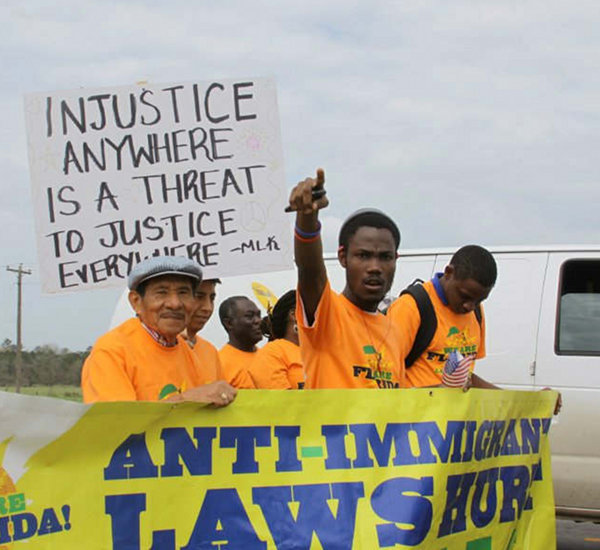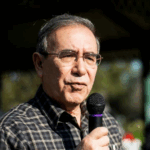Black History Month

With the start of a new year it is fitting to look back at history to see where we have been to get our bearings as to where we are headed.
U.S. history is permeated by the effects of slavery, and the injustices perpetrated upon the descendents of former slaves and other marginalized peoples. One place where this is evident is in the relations and fate of Latinos and African Americans.
In November 2012, 93% of Blacks and 71% of Latinos voted for President Obama. Many commentators felt this was the deciding factor in his reelection. Despite having reelected the first ever African American President, Latinos and Blacks face an equally dismal future. The wealth gap of whites to Blacks has grown to 20 times greater, and of whites to Latinos, 18 times greater.
Most of the discrepancy of wealth is due to the housing collapse, and the inordinate devastation of Blacks and Latinos who lost their homes to foreclosures, due largely to predatory real estate and banking practices. Electoral rhetoric and promises to the contrary, the American Dream of home ownership and a “middle class” lifestyle was shattered for one quarter of all Black and Latino families.
The fate and mutual history of African Americans and Latinos run deep in American history. Soon after its independence from Spain in 1821, Mexico abolished slavery, due in large part to the role of blacks, mulattos, Mexican Indians, and mestizos in the fight for independence. This occurred well before the U.S. abolished slavery.
A little known fact of U.S. history was that during slavery, there was a second underground railroad. It ran to Mexico, where U.S. slaves escaped servitude and melted into or intermarried with the local Mexican population.
Today millions of African American and Latino workers in the U.S. are united by the poverty they share. Unlike previous waves of immigrants from other countries, the more recently immigrated Latinos share the fate of the “last hired, first fired” African Americans. As newcomers and due to language and racial discrimination, they are prevented from assimilating into U.S. society. They come cramped into boxcars or into the back of truck rigs, reminiscent of the slave ships of bygone times coming to U.S. shores, risking death traversing Arizona deserts or at the hands of immigrant agents and vigilantes. They flee the consequences of modern day wage slavery in their home countries, the Wal-Martization of their home markets, and uprooting from their land by the consequences of NAFTA.
Today African American and Latino workers are being “sold down the river” and discarded and vilified by a system that no longer needs them, though it profited from their labor. However, like the tip of the iceberg, their plight reflects that of a growing number of workers, regardless of color. The capitalist system itself is dying, and what is developing is a struggle for a whole new society, free of poverty and oppression. The key to victory is the unity of the workers, regardless of color or nationality, and cementing the bond between Black and Latino workers is a critical part of that class unity. The rulers, on the other hand, have to break up any motion toward unity.
This is the significance of Black History. It is American history. Just as it took enlisting former slaves to finally defeat the slave system during the American Civil War, so too today this moment of Latino and Black unity points the way to the emancipation of all Americans from modern wage slavery.

